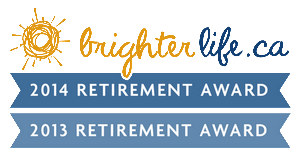2020 was a shock to our collective systems
and we are ready for a better 2021, yet a better year has not yet arrived. Some of you may
have thought of retiring in 2020 but have put it off until COVID is brought
under control. That wait is good, but well you are waiting here are some
questions that you should take time to spend in introspection as you prepare
for retirement.
They will help you identify mistakes of the
past and how you can turn your retirement into a time where you reach your dreams
or get back in shape, rekindle an important personal relationship, or make a
dent in the universe through your giving and value-adding.
1) What has changed since you started
thinking of retirement?
2) Where did you "exceed your known
definition of greatness"?
3) Where did you fall short?
4) What did you learn about yourself or
those around you that you didn't know before?
5) What are the areas in your life that
need transformation?
6) Will you continue to focus on something
you started here?
7) Could you apply this discipline
elsewhere, such as marriage, exercise, a job, your social life, etc.?
Remember that more change happens in the
mind than in reality. Be sure to observe and acknowledge how you've evolved,
matured, or otherwise improved your mindset as well as the tangible results
you've produced. Roll with the punches, baby. Be honest with yourself.
A transformation is an active pursuit, one
that requires initiative, drive, desire, planning, and follow-through. Conduct
an open-eyed, honest review.
Then go live your life. Take some chances,
even if there's the possibility of failure. Be an opportunist, keeping an open
mind and seeing new possibilities you might never have considered before."
Take stock. Spend time by yourself thinking
about yourself. It might be uncomfortable. But it will be worth every minute.
Don't dwell on past mistakes because that
will get you nowhere. Instead, focus on what you can and WILL do today,
tomorrow, and the rest of your life, and all the great things that will happen
because of your actions.
Don't wait for the 'time to be right' (i.e.,
until it's too late) to act on your goals. If there's something you really want
to do - if there is a dream body, you want to achieve or a change in life you
need - then find a way to do it now.
Instead of waiting, just get started.
Focus on replacing your bad habits and
thought patterns, one-by-one, over time, with good habits and thought patterns.
One step at a time, done over time, leads to powerful changes in your life.
Everything you do is either moving you
closer to or farther away from your goals. So which way will you be moving
today?
Remember that every action has an impact.
Remember that every decision makes things
better or worse.
Remember that everything counts,
Set your goals. Follow your dreams. Start
today. Start right now!
